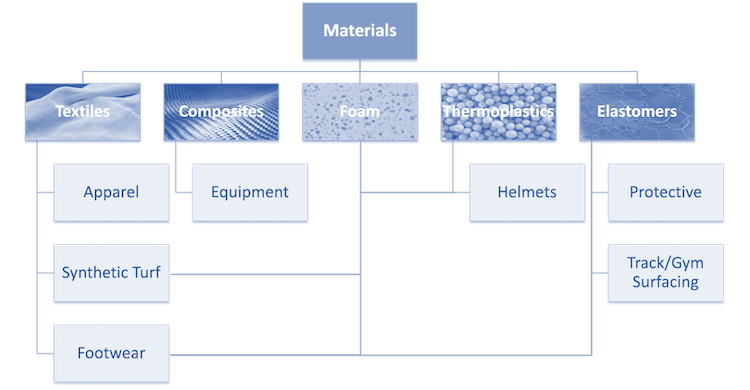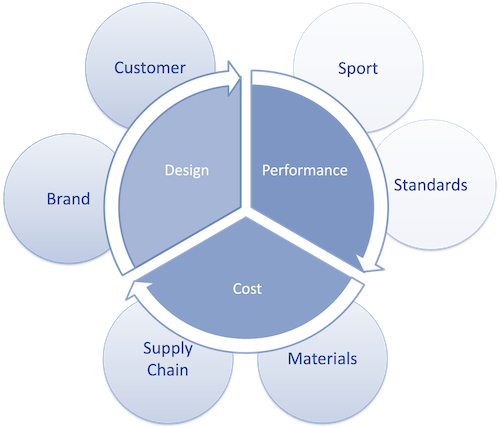How to optimize Materials for Sports Equipment and Apparel?

2023-08 When it comes to surfaces and equipment, protective articles, footwear and apparel, a variety of different materials have been used in sport. The sports technology stack of advanced materials includes fibers & textiles, composites, foam, thermoplastics and elastomers. In fact, many examples exist where multiple materials are being combined to protect, permit or enhance athlete performance.
Advanced Materials and their Applications in Sport
For some time, advanced materials have been used for example in shoe design from the outsole, mid- to innersole. Different shock absorbing materials ranging from rubber, foam, gel and thermoplastic polyurethane have been introduced. In addition, as capabilities in additive manufacturing, like 3D printing or knitting, continue to develop further, complex three-dimensional structures or elastic plates have been incorporated into the design of an ever-more sophisticated combination of shoe soles and light-weight uppers.

© copyright
Similarly, helmets combine protective shells with shock absorbing foam or even 3D-printed lattice structures. Modern bicycles, rackets or other equipment can be based on composite materials to reduce weight and improve material strength.
Optimizing Sports Product
Material selections under consideration in sport are dependent on specified factors. Sports specific questions and applicable standards will generally necessitate certain performance characteristics and acceptance criteria. Any material selection needs to allow for unimpeded skill execution but should not otherwise provide an unfair advantage in competition. At the same time, suppliers must balance cost of materials and availability through the supply chain whilst harmonizing design elements in relation to their brand image and customer expectation.

© copyright
Additional Information
If you are interested to further understand how to optimize the selection of advanced materials in sports, please contact chemneera.
Credits: Photos by M Schlegel



